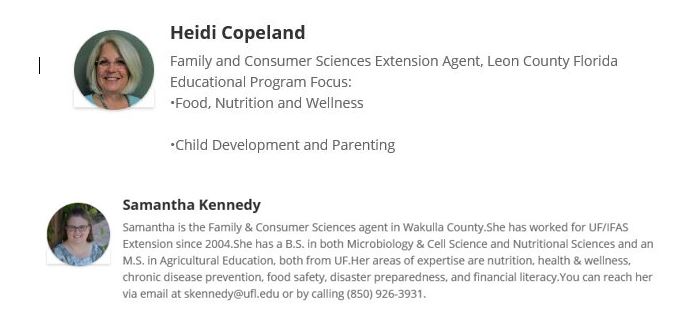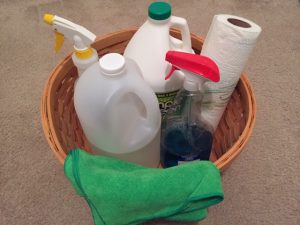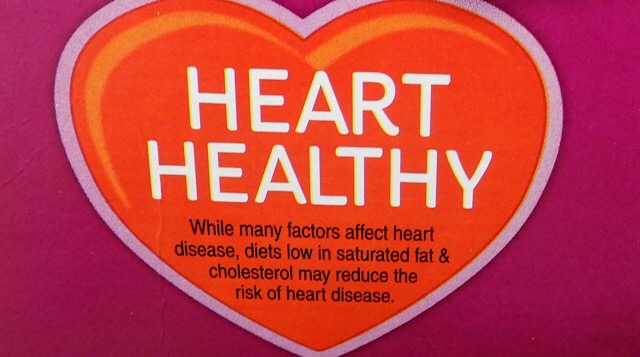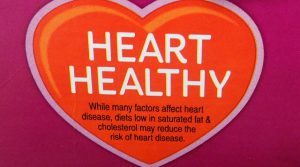
by Angela Hinkle | May 6, 2019
Spring has sprung! Have you? One way to shake off those groggy winter hibernation feelings is to Put a Little Step In Your Spring.
Regular Brisk Walking
- Means you can talk but maybe not sing. You may be slightly out of breath.
- Improves overall health.
- Can help you maintain a healthy weight.
- Prevents chronic health conditions including heart disease, high blood pressure, and type 2 diabetes.
- Strengthens bones.
- “Boosts” or increases muscle power and endurance.

Ready to walk to the top (of Mt Vesuvius) Photo Source: Richard Waid
Strive for 10,000 Steps a Day
- Spring clean your house.
- Mow the lawn.
- Dance around your living room.
- Take the stairs.
- Park in the farthest spot in the parking lot from your destination.
- Wear a pedometer or electronic fitness device to measure how many steps you’ve gone.
- Try for at least 30 minutes a day. If you can’t – break up your walking into smaller segments.
- Vary your intensity – speed up, slow down. Then repeat.
- Vary the view. Try different settings to walk – your neighborhood, the beach, or the woods.
Make It Social
- Let your dog take you for a walk. (Be sure to bring cleanup bags with you and have your best friend(s) on a leash.)
- Walk with friends.
- Make it a family routine.
- Join a walking club.
- Compete with a group to see who can get the most steps.
- Walk in the mall or a park. And say hello to people as you pass by.
- Mindful walk – notice the colors around you, how your feet feel as they step down on different surfaces, the variety of sounds you hear on your walk. Meet someone along the way. Learn their name…and remember it. For info on mindfulness, check out this UF/IFAS publication: Mindfulness: An Introduction.
Always remember to walk in a safe environment, wear comfortable walking shoes, and check with your medical provider for the best walking strategies for you.
So this spring, see how the flowers pop in color. Hear all the different sounds the birds make or enjoy some of your favorite music. Feel the wind and sun on your face. You can do all that and more when you Put a Little Step in Your Spring.

by Samantha Kennedy | Apr 25, 2019
As we get older, our risk of falling increases. In fact, falling once doubles the chances of falling again. According to the Centers for Disease Control and Prevention (CDC), one out of five falls causes serious injury such as broken bones or head injury. Over 300,000 people aged 65 or older are hospitalized each year for hip fractures caused by falls.

Properly installed handrails in bathrooms and other high traffic areas can greatly reduce the risk of falling. (Photo source: Samantha Kennedy)
Most fall injuries occur in the home. We think of our homes as our safe space and sanctuary, often overlooking potential dangers. Here are six common hazards that occur in the home that can contribute to an increased risk of falling.
Clutter. Items that block or limit walkways in the home can be tripping hazards. Having to navigate around excess furniture or boxes can be difficult for someone with limited mobility. Clear out the clutter and keep walkways free of extraneous items. Wide open hallways and other spaces in the home will reduce potential tripping hazards.
Rugs. Rugs large and small can be tripping hazards. People can catch their toes underneath a rug’s edge or the rug itself can slip out from under them, causing a fall. Remove any rugs that are not necessary, such as rugs set out strictly for decoration. Apply slip-resistant backing to rugs to keep them from sliding across the floor.
Lighting. Dim lighting can make it difficult to see potential tripping hazards. Install brighter lights, especially in walkways and stairwells. Use nightlights in hallways and bathrooms to help navigate more easily at night.
Storage. Many falls occur when people are trying to reach items that are stored out-of-reach. Rearrange items, especially those used most often, in cabinets and on shelves so they can be reached easily without needing a step ladder.
Handrails. The lack of handrails or handrails that are broken or installed incorrectly can contribute to falls. The extra support and stability provided by handrails is vital, especially for those with limited mobility. Installing proper handrails in the bathroom (including the toilet and shower) and on stairs can greatly reduce the risk of falling.
Pets. Small pets can contribute to falls by inadvertently acting as a tripping hazard. Be aware of where pets are and tread carefully around them. When walking a pet, keep them on a tight leash and do not let them wrap around feet or legs.
Another great way to help reduce the risk of falling is through exercise. Strength and balance exercises such as Tai Chi help improve leg strength, balance, and flexibility. Some people also may benefit from calcium and vitamin D supplements, which can improve bone strength. Always consult a physician before taking any supplement.
Related articles:
Important Facts about Falls (CDC)
Fall Prevention (UF/IFAS Extension)
Extension classes are open to everyone regardless of race, creed, color, religion, age, disability, sex, sexual orientation, marital status, national origin, political opinions or affiliations.

by Samantha Kennedy | Apr 10, 2019

One way to be more sustainable when shopping for groceries is to use reusable shopping bags. They’re durable and sturdy and can help reduce the number of plastic bags that end up in the landfill each year. (Photo source: Samantha Kennedy)
Sustainability should not just be a buzzword during Earth Month. The fact that everybody either shops for or eats groceries means the whole grocery shopping experience is a good time to reflect and improve upon what we can personally do to embrace issues of sustainability.
This year in April, the Earth Month theme focuses on Returning to Nature. There is no better place to start a quest for personal sustainable improvement than the grocery store! Grocery shopping truly embraces the three main areas of sustainability: environmental, economic, and social. In fact, it has been well documented that the average family wastes about 25% of the food it purchases. (Much of this ends up in a landfill and creates problems of its own.)
With a bit of forethought, meal planning before grocery shopping can help individuals and families apply sustainable best practices for environmental, economic, and social well-being. In fact, many of the principles of sustainability can be effectively applied to both meal planning and grocery shopping.
RESPECT yourself. Good nutrition is one of the keys to a healthy life. Improve health by keeping a balanced diet. Vow to make healthier food choices for personal health and the environment.
REFUSE to use food products that do not fit your principles of sustainability. This may mean buying food with less packaging, eating more locally-grown fruits and vegetables, or looking for foods labeled as more responsibly sourced.
REDUCE the amount of food thrown out. Planning meals ahead of time and writing out a grocery list are excellent ways to start living sustainably. Planning not only saves money on groceries, it can save time and decrease the amount of personal food waste a family contributes. (Remember, freezing products can prolong their life, so if you find that you’ve overbought, try preserving some of your bounty for later use.) Reducing the number of trips to the grocery store also can help save on fuel and transportation costs.
REUSE /REPURPOSE food for another occasion. Careful meal planning helps ensure that leftovers from one meal can be incorporated into the next one, thereby reducing food waste.
RETHINK! Healthy, nutritious, delicious, and inexpensive grocery choices can be found in every food group. Not all food has to be prepackaged. In fact, with a bit of planning, dinner can be on the table in 15 minutes. (That’s less time than it takes to wait in line at a fast food restaurant.)
BE RESPONSIBLE! Use what you buy.
Stock up on low-cost healthy grain products like whole-wheat noodles, brown rice, and store-brand cereals and oatmeal.
Purchase fruits and vegetables that are in season and cost less. In addition, do not forget that frozen, dried, and canned fruits and vegetables can play an important part in meal planning.
Buy the largest size you can effectively use before it reaches the expiration date – and look for the items with the latest dates. Purchase store brands or generic brands whenever possible. Keep in mind smaller containers tend to cost more, no matter what the food group. Buying larger packages and dividing them into smaller portions can save money and reduce the amount of packaging that ends up in the landfill. Investing in small, reusable storage containers will save money and reduce waste in the end.
Practice Meatless Monday. The protein group provides inexpensive protein sources like beans, lentils, and eggs, which can be substituted for meat in many meals.
Protein does not have to be the most expensive item purchased. Consulting the store’s weekly sales flyer during meal planning can help you plan meals around meat and poultry items that are on sale.
Prepare food your family will actually eat. There are two schools of thought here: preparing just enough for one meal or preparing big-batch recipes that provide leftovers which can be frozen for later use. Either practice can be sustainable. Freeze leftovers only if you’re going to use them. Otherwise, cut down on the amount of food cooked to help reduce food waste.
Learn how to cook. Prepare and eat more meals at home. It is sustainable, good for you, and delicious. Meals cooked at home are more nutritious, less expensive, and result in less overall waste, such as packaging.
Two additional ways to be more sustainable when grocery shopping are to use reusable shopping bags and to stop using single-use plastic produce bags. Plastic grocery bags choke our landfills and end up in our water bodies. They are not biodegradable and can last thousands of years virtually intact. Reusable shopping bags are made from recycled materials and can drastically reduce the number of plastic bags that end up in the trash each year.
For more information on making your grocery shopping more sustainable, check out these related articles:
Freezing: Nature’s Pause Button (UF/IFAS Extension)
What’s in your FREEZER? (UF/IFAS Extension)
Best Practices for Shoppers at the Farmers’ Market (UF/IFAS Extension)
Sustainable Grocery Shopping (University of Northern Iowa)

UF/IFAS Family and Consumer Sciences Agents Heidi Copeland and Samantha Kennedy

by Kendra Hughson | Mar 15, 2019
I love spring cleaning. Well, I love spring. I wish someone else would do the cleaning. It does feel nice to have everything clean and sparkling for those sunny spring days. According to a 2018 survey by the American Cleaning Institute, nearly 76% of households engage in spring cleaning each year. These spring cleaners report deep cleaning and clearing clutter as the top two reasons for this annual springtime spruce up.
If you want to join the springtime cleaning craze but aren’t sure how to start, here are a few ideas:
Clear the Clutter

Get ready for the springtime spruce up. Photo credit: Kendra Zamojski
Personal belongings hold a host of memories and other emotional attachments. This means stuff can accumulate in closets, drawers, cabinets, and other places. In my own life, I try to get rid of items I haven’t used in the last year. Others may use different criteria. Pick a closet, cabinet, or other area to de-clutter and start by sorting. Separate items into boxes or baskets labeled: Keep, Donate/Sell, Recycle, Trash. This is also a great way to help children make decisions about their stuff. It always makes me feel better to clear the clutter and organize a messy cabinet or closet.
Deep Cleaning
Deep cleaning involves going through each room and cleaning it to a higher standard or reaching dirt that might get missed in a regular cleaning routine. On deep cleaning days, wash window and shower curtains, wash windows and mirrors, scrub floors, wash or wipe down walls, baseboards, and doors. Dust or wipe down light fixtures, ceiling fans, furniture, and shelves. Other tasks might include vacuuming under furniture, cleaning the carpets and rugs, and cleaning under and behind appliances.
Spring cleaning takes a little extra elbow grease compared to the regular cleaning routine. If you find this overwhelming, start small by choosing a room or even smaller by choosing a closet or cabinet. Once you see the difference, it will motivate you to tackle the next job.
References:
Healthy Homes: Dealing with Household Clutter. 2015.
Available at: https://secure.caes.uga.edu/extension/publications/files/pdf/C%201067_1.PDF
Spring Cleaning Tips
Available at: https://lancaster.unl.edu/home/articles/2005/springcleaning.shtml

by Kendra Hughson | Feb 28, 2019

Not all front of the box labels are approved and defined by the FDA. Learn what health claims are approved for use. Photo Source: Kendra Zamojski
For those of us who read food labels, grocery shopping can be a confusing maze of health claims enticing us to make what look like healthy choices. But, are these choices really healthy? When I noticed that my shampoo was gluten-free, I decided it was time to refresh my knowledge on food and product labels and figure out what is behind the label.
The Nutrition Labeling and Education Act of 1990, regulated by the Food and Drug Administration (FDA), requires the labeling of most food and sets consistent standards for certain nutritional content and health claims. Much of the consistent information we find on food products is the result of this regulation. Food products must contain the Nutrition Facts panel, use common household measurements for serving sizes, and clearly identify any food allergens. Ingredients must be listed in descending order by weight using common names and clearly identifying certified color additives such as “FD&C Red No. 40” or “Red 40.” Raw vegetables, fruits, and seafood are exempt from nutrition labeling requirements.
The FDA regulates the use of the word “healthy” on food products. To use this term, a food product must be low in fat and saturated fat, low in cholesterol, contain less than 480 mg of sodium, and contain at least 10% of the Daily Value per serving for vitamins A, C, calcium, iron, protein, or fiber. Exceptions include raw fruits and vegetables; or a single ingredient or mixture of frozen or canned fruits and vegetables; and enriched cereal-grain products. Seafood and meat products and main dishes or meals have slightly different regulations to meet the “healthy” criteria.
The United States Department of Agriculture (USDA) regulates and enforces the use of “certified organic”. To use the USDA certified organic seal, the final product must follow strict production and handling standards. Products with this seal have completed a certification process meeting standards in soil quality, animal raising practices, and pest and weed control, and certifying that they have not used synthetic fertilizers, sewage sludge, irradiation, or genetic engineering.
The USDA also regulates labels for meat and meat products. “Certified” means the USDA has officially evaluated a meat product for class, grade, or other quality characteristics (e.g., “Certified Angus Beef”). Products labelled “natural” must not contain artificial ingredients, added color, and must be minimally processed. The label must explain the use of the word “natural” such as “no artificial ingredients; minimally processed”. Meat and meat products claiming “no hormones added” cannot be used on the labels of pork or poultry unless it is followed by a statement that says “Federal regulations prohibit the use of hormones.” Beef products can make the claim if the producer has documentation showing no hormones have been used in raising the animals. Meat and poultry producers must also provide appropriate documentation that animals were raised without antibiotics to use the label “no antibiotics added”. The term “Chemical free” is not allowed on labels.
Not all front-of-the-box marketing terms and labels are defined by the FDA. When reading labels and deciphering health information, watch out for misleading terms and health claims that seem to good to be true. Learn what health claims are approved and which ones are not. Remember, packaging is designed to attract your attention and entice you to make a purchase. Read the Nutrition Facts panel and ingredients list to make the healthiest choice for you and your family.

Read the Nutrition Facts panel to make healthy food choices. Photo Source: Kendra Zamojski
Here are some other approved labels:
Juice: Juice must be 100% juice. If less than 100% juice, the product must use the terms cocktail, beverage or drink.
High or Excellent Source: Contains more than 20% of the Daily Value per serving.
Good Source: Contains 10-19% of the Daily Value per serving.
Lean: Seafood or meat contains less than 10 g total fat, 4.5 g or less saturated fat, and less than 95 mg cholesterol per serving.
Extra Lean: Seafood or meat products contain less than 5 g total fat, less than 2 g saturated fat and less than 95 mg cholesterol per serving.
Fiber Claims: If a product makes a fiber claim but the food is not low-fat, then the label must state the total fat per serving.
Antioxidant Claims: The nutrients must be included as part of the claim for example, high in antioxidant vitamins C & E.
Whole Grain and Heart Disease Claims: Food product contains 51% or more whole grain ingredients.
Gluten-free: This is a voluntary label for food products that are either naturally gluten free or gluten (e.g., wheat flour) has been removed to less than 20 ppm.
References:
A Food Labeling Guide: Guidance for Industry. 2013. Available at: https://www.fda.gov/downloads/food/guidance%20complianceregulatoryinformation/%20guidancedocuments/foodlabelingnutrition/foodlabelingguide/ucm265446.pdf
McEvoy, M. Understanding the USDA Organic Label. 2016. Available at: https://www.usda.gov/media/blog/2016/07/22/understanding-usda-organic-label
Questions and Answers: Gluten-Free Food Labeling Final Rule. Available at: https://www.fda.gov/Food/GuidanceRegulation/GuidanceDocumentsRegulatoryInformation/Allergens/ucm362880.htm
Meat and Poultry Labeling Terms. Available at: https://www.fsis.usda.gov/wps/portal/fsis/topics/food-safety-education/get-answers/food-safety-fact-sheets/food-labeling/meat-and-poultry-labeling-terms/meat-and-poultry-labeling-terms
Family and Consumer Sciences Agent III
Interim -Northwest District
155 Research Road, Quincy, FL
Office: 850-875-7135
Email: hughson@ufl.edu

by Amy Mullins, PhD, RDN | Feb 11, 2019

Make SMART changes for your health. Photo credit: UF/IFAS Northwest District
“New Year, New Me!” – the same phrase we hear and see posted all over social media every time the new year rolls around. More often than not, resolutions tied to each new year involve diet and weight changes. But how does one actually commit to these new resolutions year round?
Step 1: Forget Fads and “Dieting”
The world of nutrition can seem overwhelming with the various diets that are continuously marketed as “the next best thing for your health.” However, most diets, such as Paleo, Vegan/Vegetarianism, Keto, etc., exclude one or more food groups from the diet, which only makes things more challenging. In reality, eating healthy does not need to be that difficult. According to the 2015-2020 Dietary Guidelines for Americans, a healthy eating pattern “accounts for ALL foods and beverages within an appropriate calorie level.” Essentially, moderation is key!
In addition to fads, scratch the word “diet” from your vocabulary. Dieting implies something short term or there is an end date in mind. To build healthy, sustainable eating patterns, we want to make lifestyle changes. A healthy lifestyle not only incorporates what you eat, but includes exercise and a healthy mind as well! Use SMART goals to help attain your healthy eating/lifestyle changes for 2019: SMART stands for Specific, Measurable, Achievable, Relevant, & Time-bound.
Step 2: Focus on Food Groups
Instead of counting calories in 2019, let us count food groups! How many food groups does your meal have? Is there a protein? Vegetables? Healthy fats? Foods are generally classified into three main groups, or macronutrients. By definition, macronutrients are types of food required in large amounts in the diet. Such foods are proteins, carbohydrates, and fats.
Proteins include all types of meats such as chicken, turkey, fish, and beef. Other foods high in protein include eggs, dairy products, legumes (peas and beans), various nuts, and soy products. Proteins are the basic building blocks of your bones, muscles, skin, and blood. Your body uses proteins to build and repair your tissues and it is an essential nutrient for the human body. Strive to include a rich source of protein at every main meal! How much protein do you need? Aim to include 20-30 grams, or 4-6 ounces, at every main meal. That is the equivalent of a chicken breast that is about the size of a deck of cards or the palm of your hand.
Carbohydrates include simple sugars, all types of grains, fruits, and vegetables. Carbohydrates are the body’s main source of and preferred fuel for daily activities. It may be somewhat confusing as to what are appropriate carbohydrates to add in your diet. To simplify things, aim to include at least two different carbohydrates in your meal. Perhaps that includes a grain (aim to make half of all your grains whole grains) plus a variety of vegetables. If you really want to add a cookie to your lunch, then make sure to include some fruit or vegetables as well!
Fats are a food group that often carry a negative reputation. However, fat plays an essential role as an ingredient in hormone production, in helping to protect our organs, absorption of vitamins and nutrients, as well as providing a good amount of energy! Fats are subdivided into four groups: Monounsaturated, polyunsaturated, saturated, and trans fats. The word unsaturated indicates that these types of fats are liquid at room temperature and make up much of our healthy fats we want to include in our diet. Such fats are those found in olive oils, avocados, nuts, and seed oils and reduce the risk of cardiovascular disease. Saturated fats are solid at room temperature, and include butter, cheese, and fatty streaks you find in meats. Trans fats are a manufactured form of fat in which food manufacturers add hydrogen to liquid fats in order to make them more solid. Trans fats have been known to increase LDLs or bad cholesterol, decrease good cholesterol or HDLs, and are linked to an increased risk for cardiovascular disease and type 2 diabetes. According to the American Heart Association and 2015-2020 Dietary Guidelines for Americans, we want to limit trans and saturated fats in our diets and focus on including more oils, nuts, and fish.
Step 3: Make Small, Adaptable Changes
If you are used to consuming large amounts of processed foods and sugary beverages, the thought of completely giving up those things can be very daunting. Implementing new strategies to eat healthier begins with small and adaptable changes. Slow incorporation of more lean meats and fresh fruits and vegetables can help make the transition far less challenging.
For example, most often, macaroni and cheese is made with white pasta and high fat cheese. To modify this meal and make it healthier, try substituting whole grain pasta for regular pasta. Next, experiment by adding some of your favorite vegetables and a lean protein such as chicken or tuna. Look for 2% or low fat cheese in the grocery store to replace the regular high fat version. These simple changes will allow you to still enjoy your favorite meal, reduce the sodium and fat content, and increase your consumption of vegetables and proteins!
Small subtle changes are key to creating long-term healthy habits. The transition to building healthier eating patterns will be much easier if you shift the focus to include more of what our bodies need and less on “dieting.” If you find yourself struggling to make healthier meals, https://www.choosemyplate.gov/MyPlate is a great resource to educate yourself on how to build and maintain a healthy diet!














